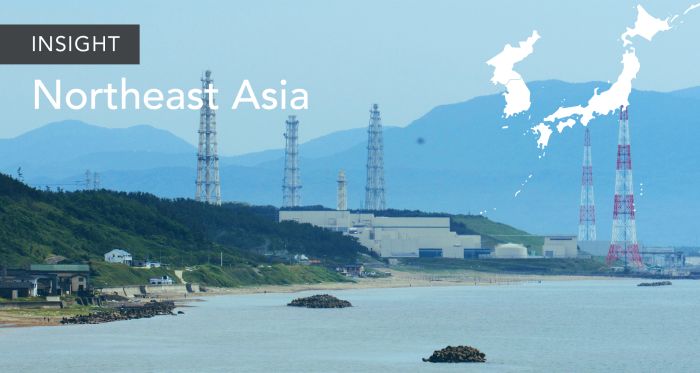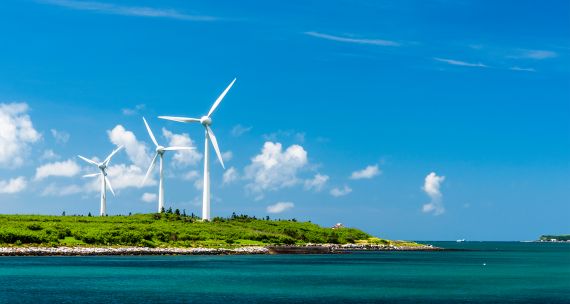The Takeaway
The devastating New Year’s Day earthquake in Japan, measuring 7.6 in magnitude, has reinvigorated questions about the country’s energy security transition. Despite the heavy push to restart nuclear power plants across the country by the national government, public opinion remains divided, with some arguing for economic revitalization and others raising safety concerns.
In Brief
On January 1, 2024, a magnitude 7.6 earthquake shook the western coast of central Japan, resulting in more than 200 deaths and 100 missing persons.
Ripples from the devastating earthquake, which destroyed infrastructure and upended lives, are still emanating. This is especially true for the region’s fishing communities, which lost hundreds of boats to the subsequent high waves.
With tsunami warnings ringing throughout Japan’s western coastal cities, memories of the 2011 Tohoku triple disaster (earthquake, tsunami, nuclear meltdown) flooded the Japanese psyche. The Shika Nuclear Power Plant in Ishikawa Prefecture, which was the closest plant to the epicentre, was already offline but reportedly suffered some damage and leaked oil. And the Kashiwazaki-Kariwa nuclear power plant, the world’s largest nuclear plant, located in Niigata Prefecture, reported spillage of radioactive water from the nuclear fuel pools following this month’s massive quake.
This event took place just days after Japan’s Nuclear Regulation Authority lifted the two-year-old operational ban on the Kashiwazaki-Kariwa plant on December 26. Despite the severe stress of the earthquake, both plant operators claim that radiation levels remain normal.
Given that Japan’s nuclear plants are all located along coastlines, the quake reignited concerns about the safety of restarting nuclear power plants in the country. On January 7, approximately 100 people gathered in Tokyo’s Shinjuku Ward holding signs of protest such as “stop nuclear power generation in an earthquake-prone country.” However, the Japanese public has largely been divided on the nuclear energy issue, with others reiterating the necessity of nuclear reactors for energy security and regional economic revitalization.
Politically, under Japanese Prime Minister Kishida’s Fumio’s Green Transformation (GX) Policy and the Sixth Strategic Energy Plan –both aimed at transitioning away from fossil fuels to meet the country’s carbon neutral goals and ensuring energy security – nuclear power is crucial. As of August 2023, of Japan’s 59 nuclear reactors, 33 are operable, nine of which are currently in commercial operation. Plans to increase the operability of more reactors are underway.
Implications
Following the 2011 Fukushima Daiichi nuclear plant accident, the government wrestled with how to respond to the disaster. Public support for nuclear energy waned in the aftermath of the accident, leading to a significant drop in nuclear power capacity from 42,564 megawatts (MW) in 2010 to just over 11,000 MW in 2023. Nuclear power plant shutdowns decreased Japan’s energy self-sufficiency ratio from 20.2 per cent in 2010 to 12.1 per cent in 2019 — an extremely low ratio compared to Canada’s 174.5 per cent in 2019.
Japan’s low energy self-sufficiency is largely owed to the country’s scarce energy resources. In 2019, fossil fuels accounted for 84.8 per cent of Japan’s energy supply, with renewables making up only 12.3 per cent. However, with high levels of energy imports, global uncertainties have time and again affected Japan’s energy supply, and the government has often called on the public to reduce energy consumption in times of volatile and low supply.
As a result, in resource-poor Japan, the government has continued to turn towards nuclear power as a stable energy source — despite the potential dangers it may pose — especially as the country strives to meet its net-zero decarbonization goal by 2050. In addition, investments into cleaner energy sources such as liquefied natural gas, ammonia, and hydrogen have gained momentum in recent years. But, in general, Japan’s energy transition to more renewables and lower-carbon energy sources is still a long way from the finish line.
What's Next
- The nuclear waste storage question
With the restart of Japan’s aging nuclear power plants, many facilities are faced with a shortage of spent nuclear-waste storage. In October, approximately 300 scientists called for the government to review its plans for nuclear waste storage and the conversation is expected to continue as the problem worsens.
- Greater energy co-operation with Canada
As Canada ramps up efforts to become a clean energy supplier of choice, Japan is a promising partner. The 2022 Canada-Japan Action Plan for contributing to a free and open Indo-Pacific outlines energy security as a key component of the partnership, and increased collaboration has already occurred at the national and subnational levels.
- More investments into renewable energy sources
In December 2023, Kishida pledged to lead carbon reduction efforts in Asia at the inaugural Asia Zero Emission Community Summit. With national goals to reach 22 to 23 per cent renewables in Japan’s primary energy supply by 2030, Japan’s government is working alongside its private sector to rapidly increase domestic and international investments in clean energy.
Produced by APF Canada's Northeast Asia team: Dr. Scott Harrison (Senior Program Manager), Momo Sakudo (Analyst), and Tae Yeon Eom (Analyst). Editor: Ted Fraser. Translation: Eva Moreta.







